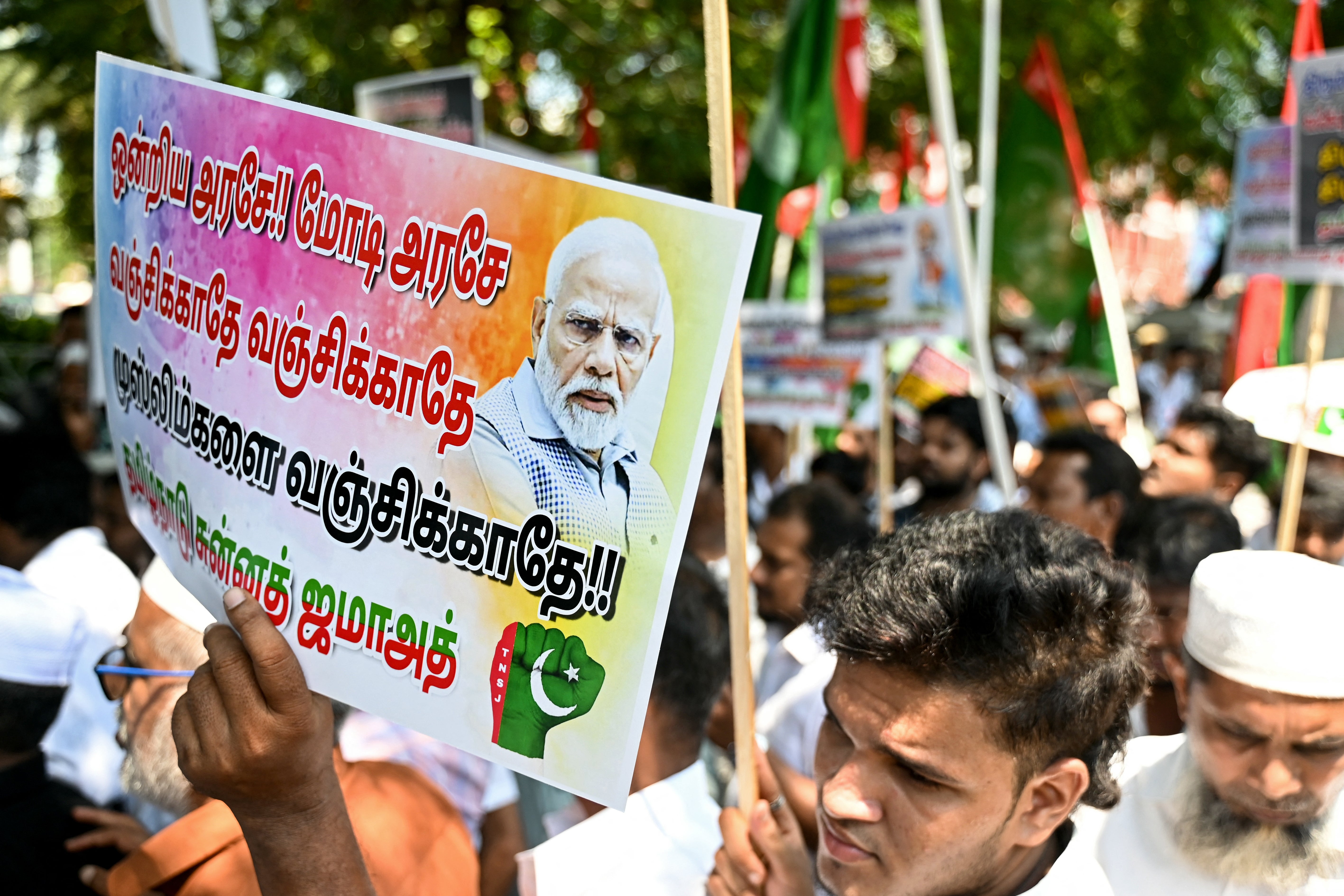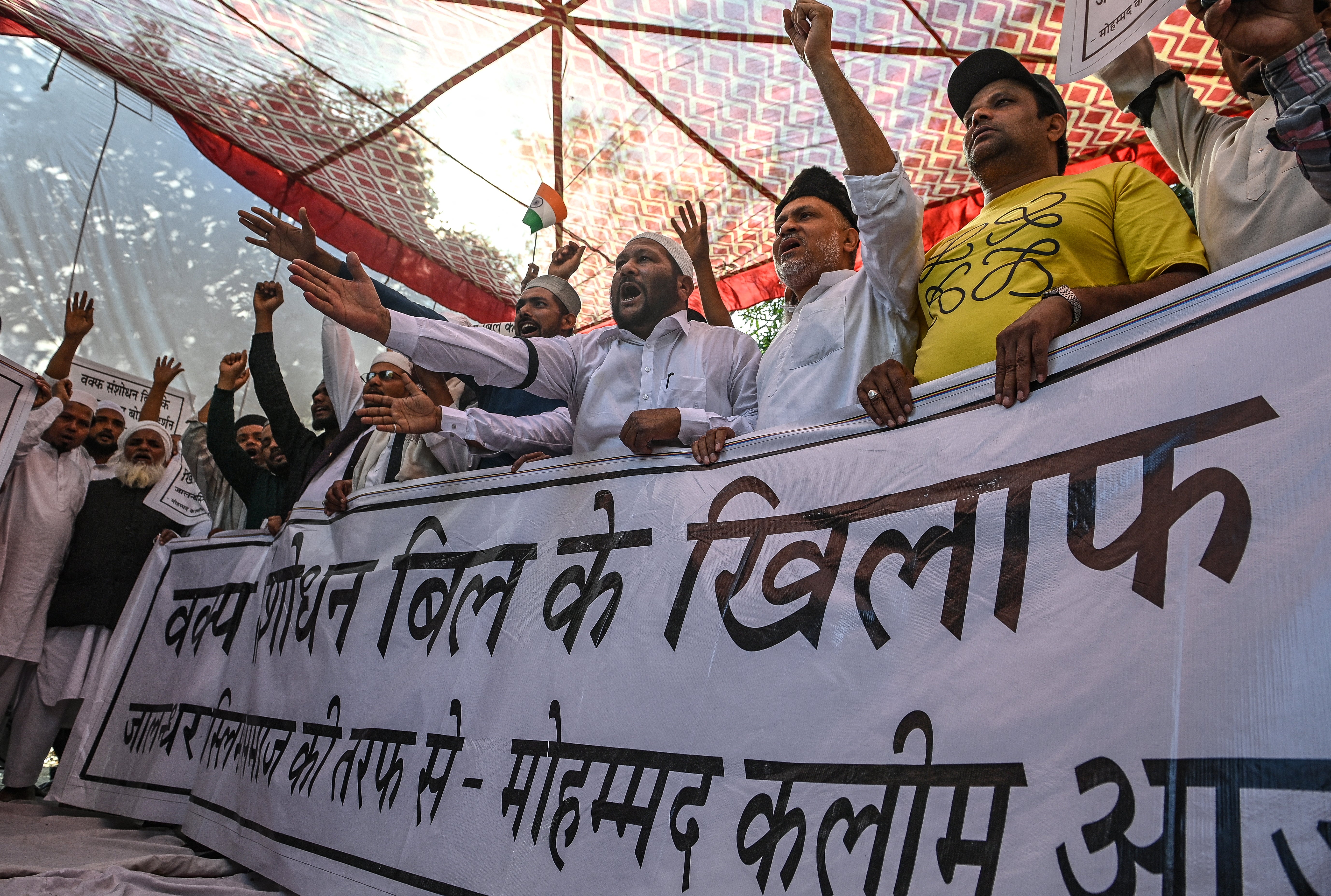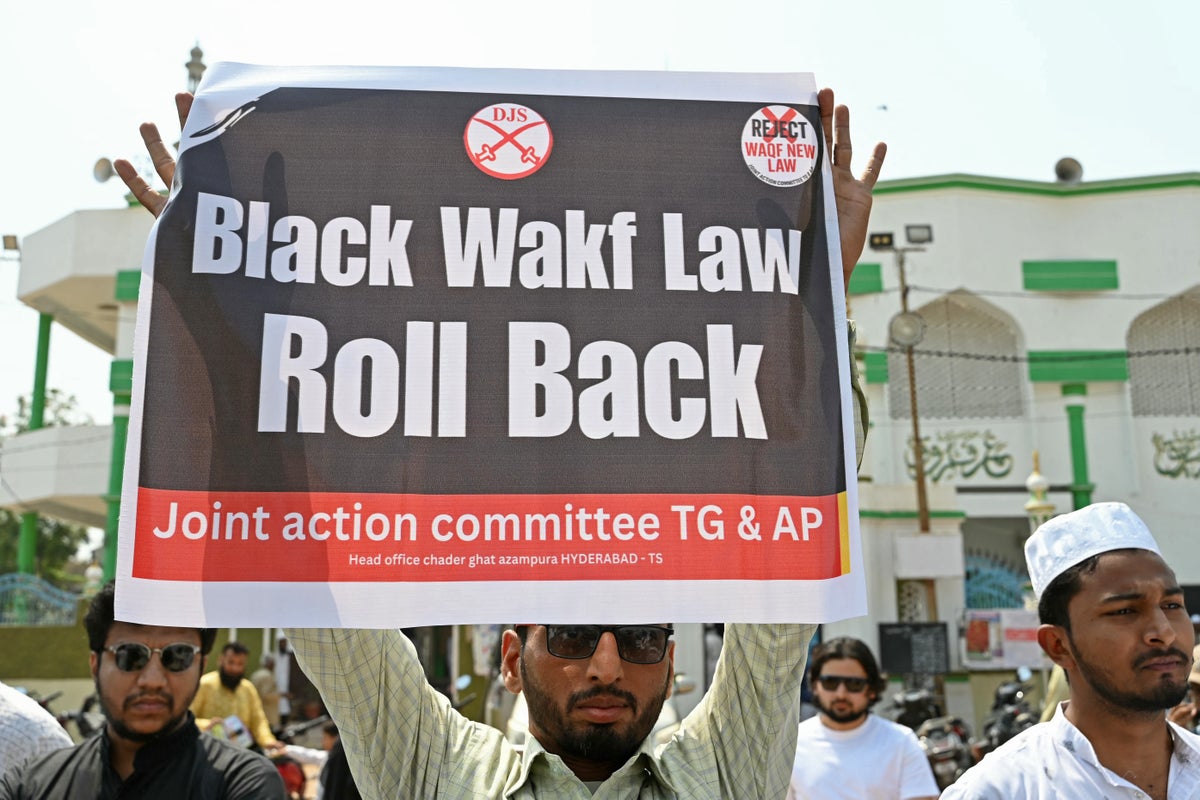India’s Supreme Court on Monday refused to stay a law cracking down on Muslim charitable trusts, though it suspended some of the most controversial elements of the legislation.
Narendra Modi’s Hindu nationalist government passed the Waqf Amendment Act 2025 earlier this year, claiming it would improve the management of waqf properties – religious and charitable assets governed under Muslim personal law – by addressing bureaucratic gaps, clarifying ownership disputes, improving transparency, and reducing encroachments on public land.
Critics said it was a thinly veiled attempt to seize Muslim-controlled properties, weaken the autonomy of the 200 million-strong Muslim minority, and increase state control of religious assets. They promptly moved the top court seeking a stay on the changes.
The amended legislation requires all waqf properties to be registered on a centralised digital portal called Umeed – short for Unified Waqf Management, Empowerment, Efficiency and Development – along with records, pictures and geotagged locations. Failure to register can lead to the property being classified as “disputed” and referred to a tribunal.
Previously, a waqf property could legally be created through formal declaration, endowment after the end of a succession line or by recognition of its religious use over time.
The new law restricts this: only Muslims who have been practising for at least five years and own the property can declare it waqf. The removal of the “use” provision instantly disqualified undocumented properties from waqf status.

The amended law also takes away the waqf board’s authority to determine the ownership of disputed waqf land and gives it to a government collector.
“The government says that disputed land will now be assumed to be government property, and it’ll be the collector’s decision. That’s against natural justice,” Asaduddin Owaisi, a leading Muslim opposition leader and MP, had earlier told The Independent. “How can you be a judge in your own case?”
A Supreme Court bench led by Chief Justice Bhushan R Gavai suspended the new provisions allowing the local collector to determine the ownership of a waqf property and update revenue records accordingly. It said such an arrangement breached the constitutional doctrine of separation of powers, noting that any dispute over property ownership must be resolved by waqf tribunals or the relevant high courts before affecting third-party rights.
The court also stayed the provision requiring that only individuals who have been practising Islam for at least five years may dedicate a waqf property, pending the creation of state-level rules for determining a person’s adherence.
Justice Gavai emphasised that, while the rule was not inherently arbitrary, enforcing it without clear mechanisms could lead to misuse.
Another contentious amendment allowed for the appointment of non-Muslims in the management of waqf institutions. The original law mandated that all waqf board members must be Muslim, including at least two women and elected representatives.
The new law enables state governments to nominate members, including non-Muslim lawmakers, judges, and “eminent persons”. The top court said the Central Waqf Council should not include more than four non-Muslim members, and state waqf boards no more than three. It suggested that the chief executives of waqf boards should ideally be Muslim, although this is not legally mandated.
Delivering the order, Justice Gavai said the amended law enjoyed a presumption of constitutionality, emphasising that only specific provisions required protection while the rest, including the mandatory registration of waqf properties, could remain in force.
The court said the registration of waqf properties had been part of India’s legal framework in some form for over a century, tracing back to the Mussalman Wakf Act of 1923 and later the 1954 act.
The petitions challenging the amendments argued that the law undermined the constitutional right of Muslims to manage their religious properties and discriminated against the community by imposing unique eligibility criteria.

Senior advocate Kapil Sibal contended that shifting the burden of registration onto the custodians of waqf properties punished the community for the state’s historical inaction.
“It is the failure of the state to carry out their job from 1954 to 2025 – and due to their failure, a community is being punished,” he said.
Other lawyers warned the law could extinguish waqf properties recognised by long-standing usage or oral tradition.
The government defended the amendments, with solicitor general Tushar Mehta saying that allowing “any person” to dedicate a waqf, as under the 2013 law, was conceptually flawed.
“How can waqf, which is an Islamic concept, be available for non-Islamic persons?” the solicitor general asked, insisting that the amendments by the Modi government were designed to enhance transparency.
Mr Mehta added that restrictions on creating waqfs on tribal land were intended to protect vulnerable communities.
The bench, however, expressed scepticism over the rationale saying: “What is the nexus of not allowing waqf on tribal land? Islam is Islam. Cultural traditions may differ, but religion is the same. If a waqf is sought to be created by fraud or deception, that will otherwise also go.”




